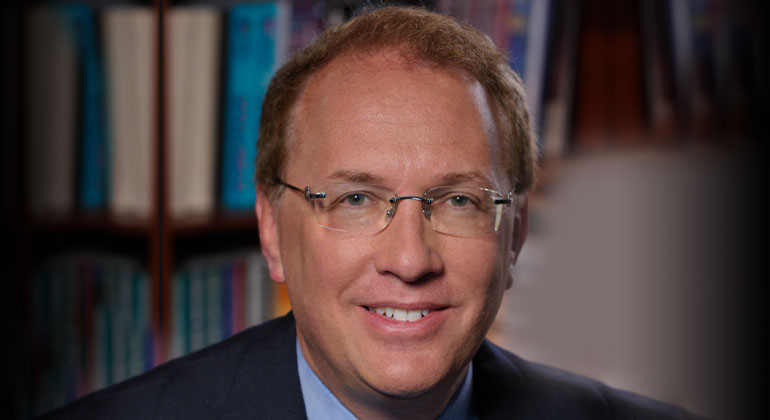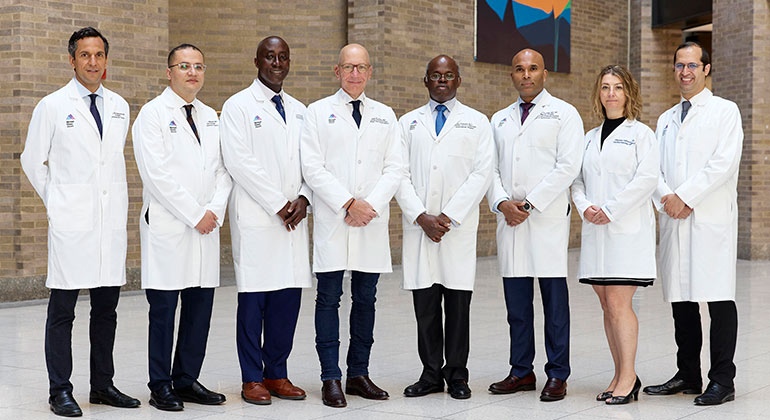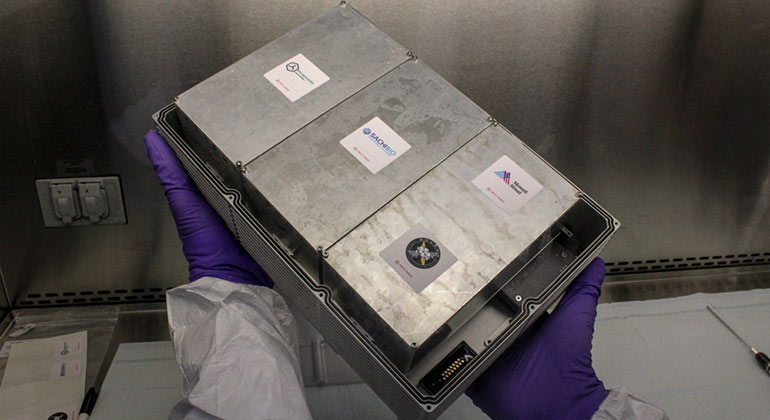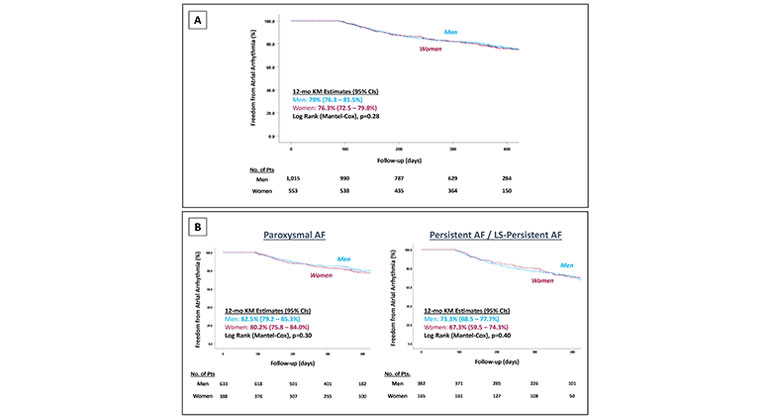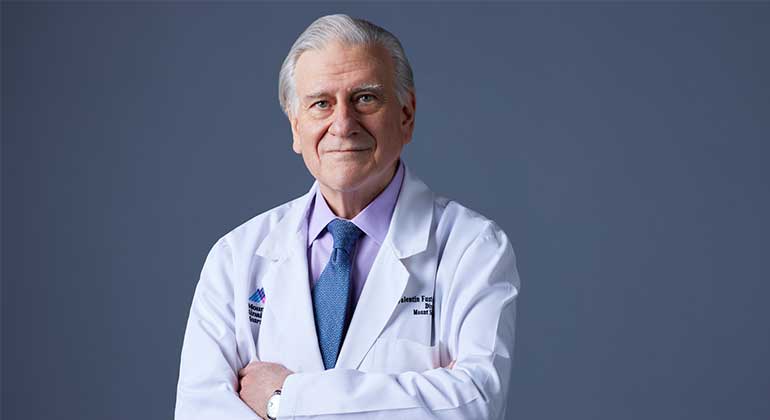Paradigms for Dual Antiplatelet Therapy after PCI Challenged by PARIS Trial
Icahn School of Medicine at Mount Sinai Presents New Findings of their Patterns of Non-Adherence to Anti-Platelet Regimens in Stented Patients (PARIS) Study at European Society of Cardiology 2013 Congress
Lead study investigators from Icahn School of Medicine at Mount Sinai presented their Patterns of Non-Adherence to Anti-Platelet Regimens in Stented Patients (PARIS) study findings at the ESC Congress 2013 in Amsterdam organized by the European Society of Cardiology. Their new study results show among patients undergoing percutaneous coronary intervention (PCI) with stents, the risk of cardiovascular complications after stopping dual antiplatelet therapy (DAPT) is highly variable depending on the context, and some patients experience no complications at all.
"Our findings challenge existing paradigms for prolonging antiplatelet therapy in otherwise stable patients after PCI, and show that in a real-world setting physicians are making appropriate decisions in selecting low-risk patients for discontinuation," says lead investigator Roxana Mehran, MD, Professor of Medicine in Cardiology and Director of Interventional Cardiovascular Research and Clinical Trials at Icahn School of Medicine at Mount Sinai.
"Conversely, when patients simply don't comply or are forced off antiplatelet therapy because they are bleeding, their risk is significantly elevated," she adds.
The PARIS study, a prospective, international, multicenter, observational registry trial led by Icahn School of Medicine at Mount Sinai, enrolled more than 5,000 patients with coronary artery disease undergoing PCI with stent implantation at 15 clinical sites in five countries between July 2009 and December 2010.
Follow-up at 30 days, six months, one, and two years determined whether patients had discontinued, interrupted, or disrupted antiplatelet therapy and whether this resulted in any major adverse cardiovascular events (MACE).
"Discontinuation" was defined as a physician-recommended cessation of medication for subjects believed to no longer need it, while "interruption" was defined as temporary (up to 14 days) due to surgical necessity, and "disruption" was due to bleeding or non-compliance.
In a final analysis of 5,018 patients at two years, the study showed a cumulative incidence of discontinuation, interruption, and disruption of 40.8 percent, 10.5 percent, and 14.4 percent, respectively, while the cumulative incidence of MACE was 11.5 percent.
At one-year, which is the duration currently recommended for antiplatelet therapy, the cumulative incidence of discontinuation, interruption, and disruption was 11.5 percent, 4.6 percent, and 9.8 percent respectively, with a 7.4 percent cumulative incidence of MACE.
The majority of MACE (74 percent) occurred in patients who had remained on their recommended antiplatelet therapy, but among those who had not, there was a 50 percent increased risk of MACE associated with disrupting compared to staying on medication, and a 37 percent decreased risk associated with discontinuation compared to staying on. In contrast, brief interruptions did not increase risk for thrombotic events such as stent thrombosis or myocardial infarction.
"The findings show that when physicians recommend discontinuation presumably because patients are stable, there is no risk of adverse events, but when patients simply don't comply or are forced off antiplatelet therapy because they are bleeding, their risk is significantly elevated," says Dr. Mehran.
For the latter group, a novel finding was that the risk of MACE was highest in the first seven days of disruption (when there was a seven-fold increase), after which it decreased.
Importantly, the study also showed that sustained antiplatelet therapy was not associated with reduced thrombotic risk compared to recommended discontinuation – a finding that goes against common assumption.
"In fact, there was a slight, though statistically non-significant reduction in risk associated with recommended discontinuation, which contrasts with some previous studies that have suggested a potential protective effect with prolonged antiplatelet therapy," she says.
The PARIS study results show that the effect of antiplatelet cessation on cardiovascular risk is "modest" offering insight on this interaction in the modern era of post-PCI therapy.
Previous studies have not included such a broad range of subjects and did not account for the context around antiplatelet cessation, according to Dr. Mehran.
"We hope that these novel findings will spur initiatives to standardize and harmonize criteria for DAPT cessation, analogous to previous efforts used for myocardial infarction and bleeding."
The PARIS study was supported by a Mount Sinai investigator-initiated grant from Bristol Myers Squib/Sanofi-Aventis. Representatives of the funding agency were not directly involved in the collection, management, analysis, or interpretation of the data.
Dr. Mehran reports Institutional Research Grant Support from The Medicines Company, Bristol-Myers Squibb/ Sanofi and Lilly/ Daichii Sankyo and Consulting fees from Abbott Vascular, Astra Zeneca, Boston Scientific, Covidien, Janssen (J+J), Regado Biosciences, Maya Medical, and Merck. Additional co-author disclosures include: Dr. Philippe Gabriel Steg reports research grants (to INSERM U698) from Sanofi and Servier. Dr. Steg reports speaking or consulting fees from Ablynx, Amarin, Astellas, AstraZeneca, Bayer, Boehringer- Ingelheim, BMS, Daiichi-Sankyo-Lilly, GSK, Medtronic, Merck, Novartis, Otsuka, Pfizer, Roche, Sanofi, Servier, The Medicines Company, and stock holdings in Aterovax. Dr. Annapoorna S. Kini reports consulting fees from WebMD. Dr. Thomas Stuckey serves on the Medical Advisory Board and has received honoraria from Boston Scientific, Eli Lilly/ Diachii Sankyo. Dr. David J. Cohen reports consulting income/speaking honoraria from Eli Lilly, Astra Zeneca, Medtronic, Abbott Vascular and institutional research grant support from Medtronic, Abbott Vascular, Boston Scientific, Eli Lilly, and Astra Zeneca. Dr. Peter B. Berger reports institutional research grants from Janssen, The Medicines Company, AstraZeneca, Eli Lilly/ Daichii Sankyo, Bristol Myers Squibb/ Sanofi and consulting fees from Janssen and Medicure. The authors report no conflicts of interest.
About The Mount Sinai Medical Center
The Mount Sinai Medical Center encompasses both The Mount Sinai Hospital and Icahn School of Medicine at Mount Sinai. Established in 1968, the Icahn School of Medicine is one of the leading medical schools in the United States, with more than 3,400 faculty in 32 departments and 14 research institutes. It ranks among the top 20 medical schools both in National Institutes of Health (NIH) funding and by U.S. News & World Report. The Mount Sinai Hospital, founded in 1852, is a 1,171-bed tertiary- and quaternary-care teaching facility and one of the nation's oldest, largest and most-respected voluntary hospitals. The Mount Sinai Hospital is nationally ranked by U.S. News & World Report as one of the top 25 hospitals in 7 specialties based on reputation, safety, and other patient-care factors.
For more information, visit http://www.mountsinai.org/.
Find Mount Sinai on:
Facebook: http://www.facebook.com/mountsinainyc
Twitter @mountsinainyc
About the Mount Sinai Health System
Mount Sinai Health System is one of the largest academic medical systems in the New York metro area, with more than 43,000 employees working across eight hospitals, over 400 outpatient practices, nearly 300 labs, a school of nursing, and a leading school of medicine and graduate education. Mount Sinai advances health for all people, everywhere, by taking on the most complex health care challenges of our time — discovering and applying new scientific learning and knowledge; developing safer, more effective treatments; educating the next generation of medical leaders and innovators; and supporting local communities by delivering high-quality care to all who need it.
Through the integration of its hospitals, labs, and schools, Mount Sinai offers comprehensive health care solutions from birth through geriatrics, leveraging innovative approaches such as artificial intelligence and informatics while keeping patients’ medical and emotional needs at the center of all treatment. The Health System includes approximately 7,300 primary and specialty care physicians; 13 joint-venture outpatient surgery centers throughout the five boroughs of New York City, Westchester, Long Island, and Florida; and more than 30 affiliated community health centers. We are consistently ranked by U.S. News & World Report's Best Hospitals, receiving high "Honor Roll" status, and are highly ranked: No. 1 in Geriatrics and top 20 in Cardiology/Heart Surgery, Diabetes/Endocrinology, Gastroenterology/GI Surgery, Neurology/Neurosurgery, Orthopedics, Pulmonology/Lung Surgery, Rehabilitation, and Urology. New York Eye and Ear Infirmary of Mount Sinai is ranked No. 12 in Ophthalmology. U.S. News & World Report’s “Best Children’s Hospitals” ranks Mount Sinai Kravis Children's Hospital among the country’s best in several pediatric specialties.
For more information, visit https://www.mountsinai.org or find Mount Sinai on Facebook, Twitter and YouTube.

Inter-Atrial Shunts May Benefit Some Heart Failure Patients While Harming Others
Apr 06, 2024 View All Press Releases
Ismail El-Hamamsy, MD, PhD, Named President of the Heart Valve Society
Feb 22, 2024 View All Press Releases
